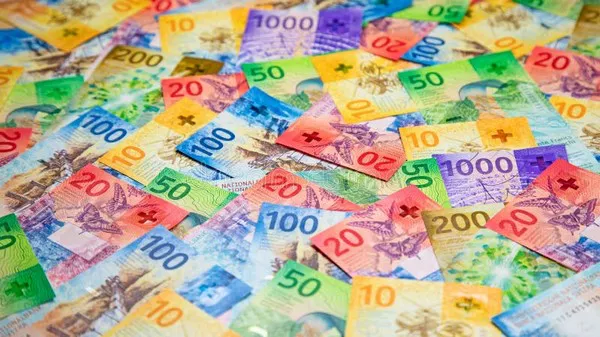In the world of international finance, currencies play a vital role in determining the economic health and stability of nations. Among the various global currencies, the Swiss franc (CHF) and the United States dollar (USD) hold significant prominence. Both currencies are widely traded and have a profound impact on international trade, investment, and financial markets. This article aims to explore the question: Is the Swiss franc stronger than the USD?
Understanding Currency Strength
Before delving into the comparison between the Swiss franc and the USD, it is essential to understand the concept of currency strength. Currency strength refers to the value of a currency relative to other currencies in the foreign exchange market. Several factors influence currency strength, including economic fundamentals, monetary policy, geopolitical factors, and market sentiment.
Swiss Franc: A Safe-Haven Currency
The Swiss franc has long been regarded as a safe-haven currency. Switzerland’s reputation for political stability, low inflation, solid financial system, and neutrality during times of global crises has contributed to its perceived strength. Investors often flock to the Swiss franc during uncertain times, seeking refuge from market volatility and economic instability. The demand for the franc increases, driving up its value against other currencies, including the USD.
Factors Influencing Swiss Franc Strength
1. Economic Stability: Switzerland’s robust economy, characterized by low unemployment, high productivity, and strong fiscal discipline, contributes to the strength of the Swiss franc. The country’s focus on innovation, precision manufacturing, and banking services has helped sustain economic growth and attract foreign investment.
2. Monetary Policy: The Swiss National Bank (SNB) plays a crucial role in maintaining the strength of the Swiss franc. The SNB follows a policy of price stability, aiming to keep inflation low and stable. It intervenes in the foreign exchange market when necessary to prevent excessive appreciation of the currency. This proactive approach by the SNB has helped bolster the Swiss franc’s value.
3. Safe-Haven Status: As mentioned earlier, the Swiss franc is considered a safe-haven currency due to Switzerland’s political stability and reputation for financial security. During times of global uncertainty, such as economic recessions or geopolitical tensions, investors seek refuge in Swiss franc-denominated assets, leading to an increase in demand and subsequent strength of the currency.
United States Dollar: The Global Reserve Currency
The United States dollar holds a unique position in the global economy as the world’s primary reserve currency. Its dominance in international trade, investment, and financial markets gives it significant influence. While the Swiss franc is renowned for its safety and stability, the USD’s strength lies in its status as a global currency.
Factors Influencing US Dollar Strength
1. Economic Size and Stability: The United States boasts the world’s largest economy, which contributes to the strength of the USD. The country’s GDP, consumer spending, and business investments are substantial factors influencing the value of the dollar. Additionally, despite occasional economic downturns, the U.S. economy has demonstrated resilience and recovery capabilities over time.
2. Monetary Policy: The Federal Reserve, the central bank of the United States, plays a pivotal role in shaping the value of the dollar through its monetary policy decisions. Factors such as interest rate adjustments, quantitative easing measures, and inflation targeting impact the strength of the USD. Changes in monetary policy can affect investor confidence and, subsequently, the dollar’s exchange rate.
3. Geopolitical Factors: The global influence and military power of the United States also contribute to the strength of its currency. Stability in the U.S. political landscape and its diplomatic relations with other nations play a role in maintaining the USD’s position as a trusted global currency.
Comparison: Swiss Franc vs. US Dollar
Determining which currency is stronger, the Swiss franc or the US dollar, requires analyzing various factors and considering different time frames. Currency strength is relative and can fluctuate based on economic conditions, market sentiment, and geopolitical events.
Historically, the Swiss franc has exhibited strength against the USD due to its safe-haven status and Switzerland’s reputation for stability. However, the USD’s global reserve currency status and the sheer size of the U.S. economy provide it with inherent strength and influence in international markets.
Conclusion
In conclusion, the question of whether the Swiss franc is stronger than the USD does not have a definitive answer. Both currencies hold significant importance in the global financial system and are influenced by various economic, monetary, and geopolitical factors. The Swiss franc’s safe-haven status and Switzerland’s stability contribute to its perceived strength, while the USD’s dominance as a global reserve currency and the size of the U.S. economy bolster its position. Understanding the nuances of currency strength requires continuous monitoring of economic indicators and keeping abreast of global developments.


